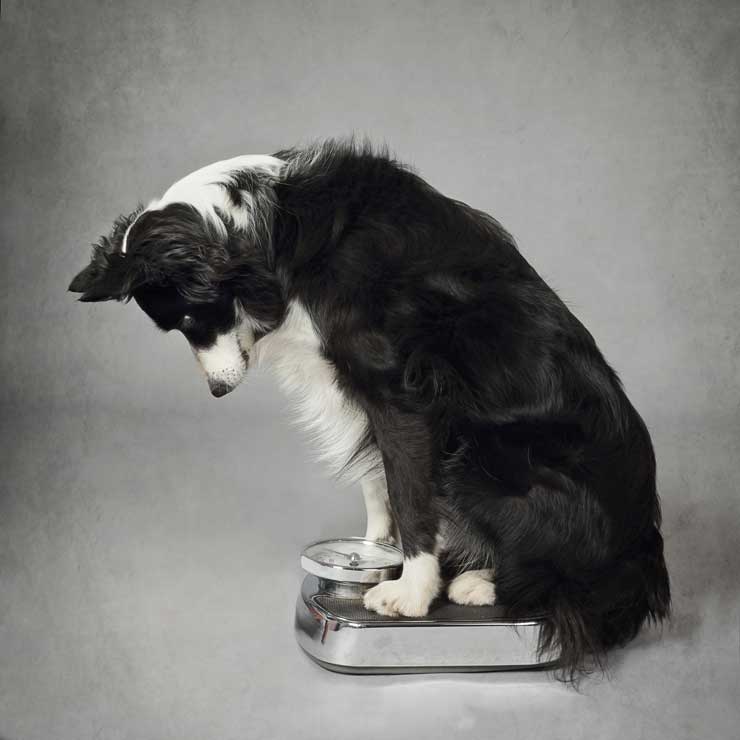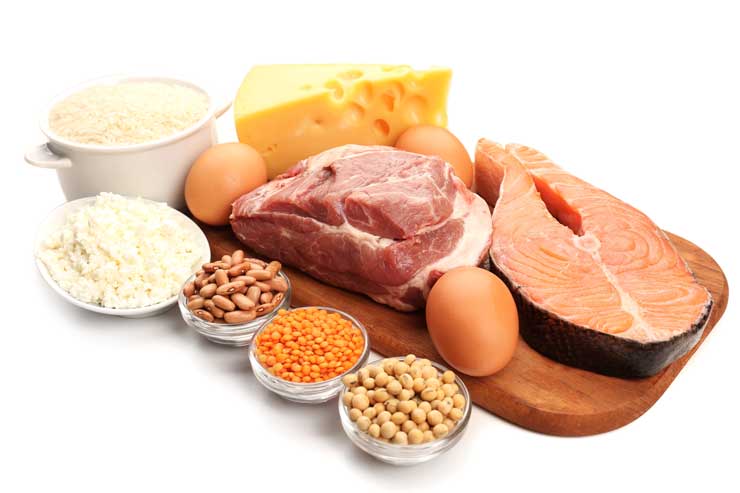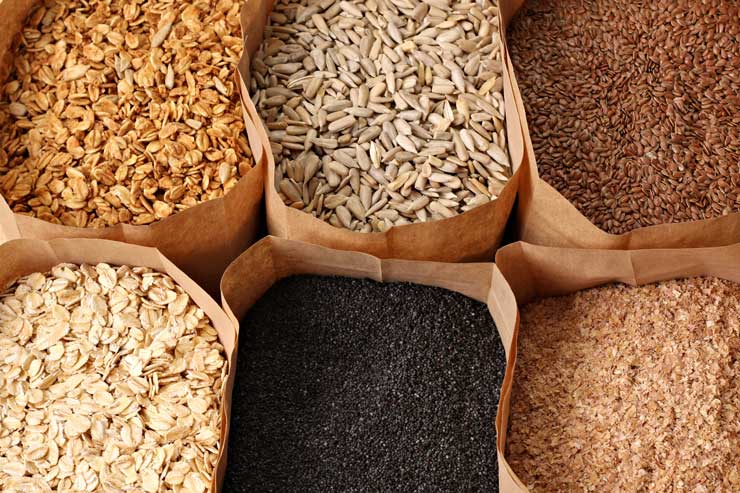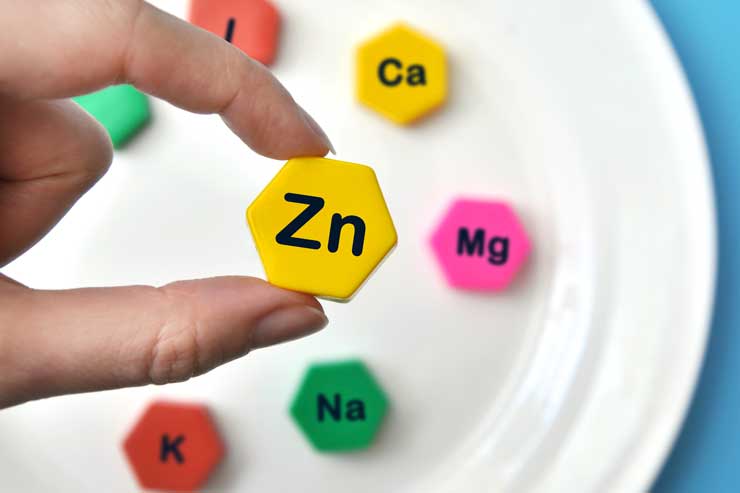Feeding dogs with liver disease
June 12, 2023 | By Fiona Firth

The liver is a vital organ in your dog's body, second only to the skin in terms of size. It functions as both an organ and a gland, performing over 500 essential tasks from regulating body temperature and storing vitamins to producing bile and maintaining blood composition. When the liver stops working correctly, the consequences can be severe and even life threatening. In this article, we will explore the importance of the liver, the signs, types and causes of canine liver disease, and dietary considerations for dogs with liver problems.
What is liver disease?
Liver disease is one of the most common non-infectious diseases affecting dogs. It can range from mild conditions that are easily manageable to more severe cases that can be life-threatening. Some of the common forms of liver disease in dogs include hepatitis, cirrhosis, hepatic lipidosis (fatty liver disease), and liver tumours.
The prevalence of liver disease can vary among different breeds and age groups. While some dog breeds, such as Yorkshire Terriers, Cocker Spaniels, and Labrador Retrievers are more susceptible to certain types of liver disease, liver disease can affect any dog.
Signs of liver disease
 Liver disease encompasses various disorders, with over 100 types identified in humans. While symptoms can vary significantly between the different forms, common signs include: Liver disease encompasses various disorders, with over 100 types identified in humans. While symptoms can vary significantly between the different forms, common signs include:
- Vomiting and diarrhea
- Weight loss
- Reduced appetite
- Lethargy
- Light-colored feces
- Changes in drinking habits
- Discomfort around the abdomen
- Jaundice
- Confusion
- Seizures
- Behavioral changes
Types and causes of liver disease
 Liver disease is a broad term that encompasses various conditions (over 100 forms have been identified in humans!). It can be classified as acute or chronic. Some common causes of liver disease in dogs include: Liver disease is a broad term that encompasses various conditions (over 100 forms have been identified in humans!). It can be classified as acute or chronic. Some common causes of liver disease in dogs include:
- Hepatitis (liver inflammation)
- Liver cancer
- Congenital conditions like a portosystemic shunt
- Idiopathic or unknown causes
- Other underlying diseases leading to liver dysfunction
Feeding dogs with liver disease
Diet can and should play a central role in managing your dog's liver disease but since different types of liver disease may require specific dietary recommendations, it's important to get a proper diagnosis from your vet before making any big changes.
Easily digestible
Since the liver plays a central role in digestion, ensuring the diet as as easy as possible to digest not only reduces the workload on the liver but also makes the nutrients that are needed for recovery and maintaining body weight more readily available.
Dogs are best at digesting meats and other bio-appropriate ingredients so we would recommend sticking with foods with our natural, hypoallergenic and high-meat logos and avoiding foods with any red or yellow ingredients.
Our nutritional rating is designed to reflect how digestible, bio-appropriate and beneficial in general a food is likely to be for the majority of dogs so the higher the rating, the better.
Highly palatable
As we mentioned above, weight loss is a very common symptom of liver disease so to help keep weight on it's important that your dog enjoys their food. Many manufacturers offer free samples to allow you to try before you buy.
 Protein Protein
In most cases, there is no need to restrict protein in dogs with liver disease; in fact, the liver requires high-quality protein to support hepatic regeneration [1]. Dogs with liver disease may even need a higher protein diet than normal if they only consume small amounts [2].
However, a restricted protein diet is recommended if the dog is suffering from hepatic encephalopathy [3] or end-stage cirrhosis [1]. Some studies also suggest that diets based on plant proteins rather than meat may also benefit dogs with HE [4][5][6].
Fat
A diet high in fat may be necessary for dogs with liver disease. Dogs with liver disease have higher energy requirements, and one gram of fat contains more calories than one gram of protein or carbohydrate. In addition, fat can improve palatability for patients with poor appetite.
However, fat levels should be reduced in dogs that are prone to pancreatitis or if the dog develops steatorrhea (pale feces) which indicates malabsorption and excess fat in the stool [7].
Omega-3 fatty acids from sources like salmon or algal oil might be helpful due to their anti-inflammatory properties.
Fibre
 Increased levels of fibre (3-8%) are generally recommended for dogs with liver disease as it can help to mop up nitrogenous waste and it can also reduce copper absorption [1]. Increased levels of fibre (3-8%) are generally recommended for dogs with liver disease as it can help to mop up nitrogenous waste and it can also reduce copper absorption [1].
Fibre comes in many forms, and pet food manufacturers legally only have to label crude fibre. This tells the pet owner nothing about the formulation's soluble, insoluble, fermentable or non-fermentable fibre levels. Although insoluble fibre can be useful for keeping bowel movements regular and preventing constipation, dogs with liver disease should have a diet with higher levels of soluble fibre. Soluble fibre (e.g. psyllium husk) has been shown to trap ammonia in the colon leading to more being excreted as waste. In addition, soluble fibres act as prebiotics (fuel for gut bacteria) and can benefit the gut microflora [3].
Copper
Copper associated liver disease can occur in certain breeds or due to diet-related factors. Reducing dietary copper might be beneficial in some of these cases but be sure to discuss with your vet before jumping in.
A note on carbohydrates
Carbohydrate recommendations for dogs with chronic hepatitis vary, with some suggesting highly digestible complex carbohydrates and others recommending avoiding complex carbohydrates like whole grains.
Unfortunately, too little data is currently available on how different carbohydrate levels and types affect dogs with liver disease to make any firm recommendations.

Finding the right food
So, as long as your dog doesn't have any other complications, we would suggest looking for a food that is...
Liver disease management diet checklist
- Highly digestible
- Highly palatable
- Moderate to high in fat (>14% dry matter)
- Moderate to high in fibre (>3% dry matter)
Get suitable foods
The button above will take you to a list of foods that tick these boxes. Be sure to also add your dog's age, weight and any other search criteria you might have to get even more tailored suggestions. Please note that the list is not exhaustive so you may also want to ask your favourite dog food manufacturers if they have something that would also fit the bill.

 Feeding regime Feeding regime
Feeding frequent small meals (as opposed to one or two large meals per day) is recommended as it helps to ensure the liver does not get overworked. This can also help to encourage dogs with a poor appetite to eat.
Supplements
The most common supplements recommended for liver disease are Milk Thistle (Silybum marianum), S-adenosyl methionine (SAMe), Zinc, Vitamin E and Vitamin C.
 Milk thistle is a safe supplement with antioxidant, anti-inflammatory, and anti-fibrotic properties for dogs and cats. The ideal dose is uncertain, but a range of 50-250mg/day has been suggested [8]. However, milk thistle has low bioavailability, so its effectiveness may be limited. The supplement industry is poorly regulated, so it's important to read label details for quality assurance. Milk thistle is a safe supplement with antioxidant, anti-inflammatory, and anti-fibrotic properties for dogs and cats. The ideal dose is uncertain, but a range of 50-250mg/day has been suggested [8]. However, milk thistle has low bioavailability, so its effectiveness may be limited. The supplement industry is poorly regulated, so it's important to read label details for quality assurance.
SAMe, derived from methionine, has antioxidant and anti-inflammatory effects and helps protect liver cells. It is commonly used for liver disease in dogs, but variations between supplements exist, and research is limited. A suggested dose is 20mg per kg body weight per day [3].
 Zinc supplementation has many benefits for the dog with liver disease, offering antioxidant properties, protection against toxins, and anti-fibrotic activities [3][9]. The recommended dose is 15 mg/kg/day for copper-associated liver disease and 1-3 mg/kg/day for other dogs. Zinc supplementation has many benefits for the dog with liver disease, offering antioxidant properties, protection against toxins, and anti-fibrotic activities [3][9]. The recommended dose is 15 mg/kg/day for copper-associated liver disease and 1-3 mg/kg/day for other dogs.
Vitamin C and E are often deficient in dogs with liver disease and can be supplemented to address deficiencies. Vitamin E should be used cautiously as excessive amounts can be toxic. The recommended dose is 50-400 IU/day for Vitamin E and 500-1000 IU/day for Vitamin C (provided your dog is not suffering from copper-associated liver disease, in which case vitamin C supplementation should usually be avoided [3][10]).
Selenium, a mineral and antioxidant, can become deficient in dogs with liver disease. In cases of liver cancer, supplementation can slow tumour progression, while deficiency may encourage tumour growth [11].
Conclusion
When it comes to nutrition and liver disease in dogs, there's unfortunately a lack of extensive research. We often have to rely on findings from human studies or dogs with surgically induced liver disease to make recommendations. Since there are various causes and types of liver disease, the specific nutritional advice will depend on identifying the underlying cause and considering any other health issues your dog may have, like pancreatitis or obesity.
It's crucial to emphasise that making dietary changes or adding supplements without a proper diagnosis can be harmful to your dog's well-being. Managing liver disease through nutrition alone is usually not feasible, and a comprehensive approach combining diet and medication is typically necessary. So, it's essential to work closely with your veterinarian to develop a suitable plan for your dog's specific condition.
References
- Hand M. S., Thatcher C. D., Remillard R. L., Roudebush P., & Novotny B. J. (Eds.), (2010). Small animal clinical nutritional (5th ed.) Topeka, KS: Mark Morris Institute.
- Youngerman, C (2019). Nutritional Management of Liver Failure and Hepatic Encephalopathy. Via https://healthtopics.vetmed.ucdavis.edu/health-topics/canine/nutritional-management-liver-failure-and-hepatic-encephalopathy [Accessed 15th April 2023].
- Norton, R.D., Lenox, C.E., Manino, P. & Vulgamott, J.C. 2016, "Nutritional Considerations for Dogs and Cats with Liver Disease", The Journal of the American Animal Hospital Association, vol. 52, no. 1, pp. 1-7.
- Center, SA 1998, "Nutritional Support for Dogs and Cats with Hepatobiliary Disease1", The Journal of nutrition, vol. 128, no. 12, pp. 2733S-2746S.
- Condon, R.E. 1971, "Effect of dietary protein on symptoms and survival in dogs with an Eck fistula", The American journal of surgery, vol. 121, no. 2, pp. 107-114.
- Proot, S., Biourge, V., Teske, E. & Rothuizen, J. 2009, "Soy Protein Isolate versus Meat-Based Low-Protein Diet for Dogs with Congenital Portosystemic Shunts", Journal of veterinary internal medicine, vol. 23, no. 4, pp. 794-800.
- Bexfield, N. 2017, "Canine Idiopathic Chronic Hepatitis", The Veterinary clinics of North America. Small animal practice, vol. 47, no. 3, pp. 645-663.
- Vandeweerd, J., Cambier, C. & Gustin, P. 2013, "Nutraceuticals for Canine Liver Disease: Assessing the Evidence", The Veterinary clinics of North America. Small animal practice, vol. 43, no. 5, pp. 1171-1179.
- Agrawal, H., Jaiswal, M. & Mishra, A. 2020, "Nutritionals for Better Hepatic Health in Companion Animals", Intas Polivet, vol. 21, no. 2, pp. 465.
- Sokol, R.J. 1996, "Antioxidant defenses in metal-induced liver damage", Seminars in liver disease, vol. 16, no. 1, pp. 39. [ABSTRACT].
- Harro, C.C., Smedley, R.C., Buchweitz, J.P. & Langlois, D.K. 2019, "Hepatic copper and other trace mineral concentrations in dogs with hepatocellular carcinoma", Journal of veterinary internal medicine, vol. 33, no. 5, pp. 2193-2199.
|
glamlinks •7 months ago
Great article! For those looking for more comprehensive information on health, wellness tips, and expert advice, check out AllAboutHealthInfo.com. It’s a fantastic resource with up-to-date articles on various health topics, from nutrition to fitness and mental well-being. Highly recommend!